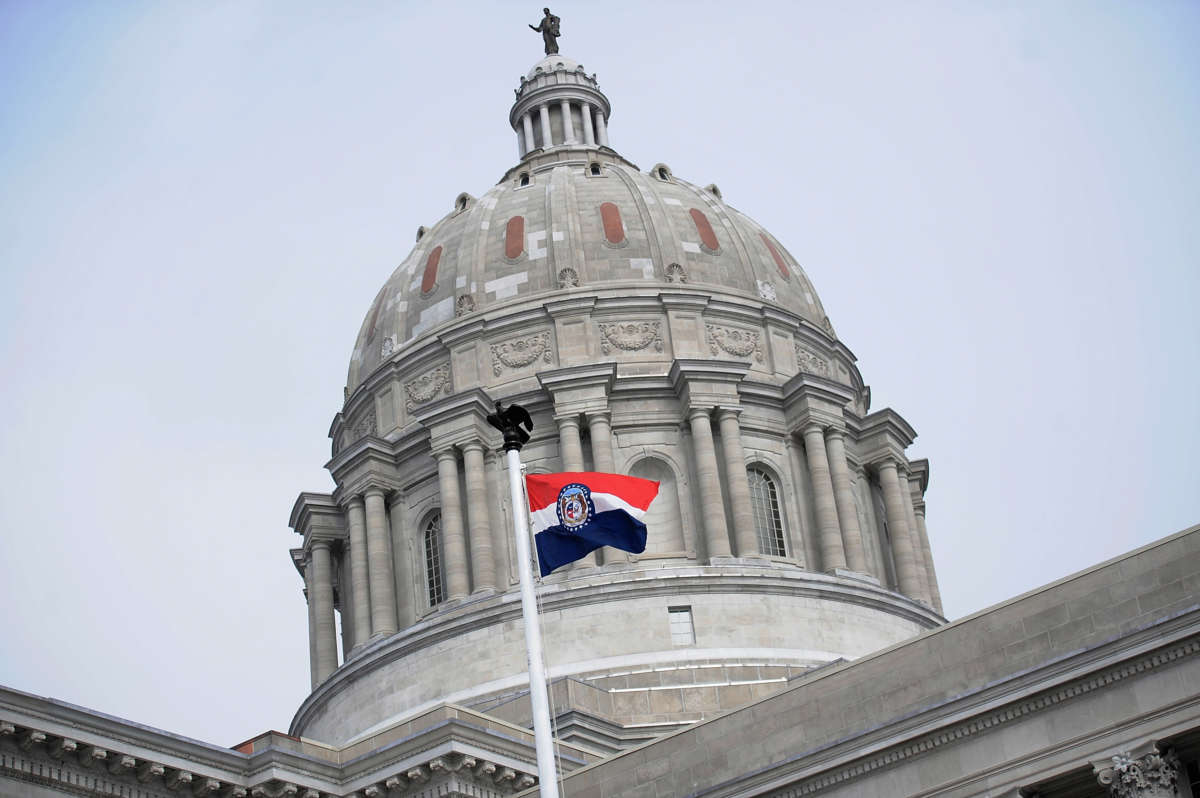Honest, paywall-free news is rare. Please support our boldly independent journalism with a donation of any size.
Republican lawmakers in Missouri are refusing to fund an expansion of the state Medicaid program that constituents approved in a vote last year, a move that will likely spur legal challenges in the months ahead.
In August, voters in Missouri were asked whether they supported expanding Medicaid eligibility as laid out in the Affordable Care Act (ACA). Though the vote was somewhat close, more than 53 percent of voters said they supported the expansion, with less than 47 percent saying they opposed it.
The expansion would cover an additional 230,000 residents of the state, Politico reported at the time.
Thirty-nine states and D.C. have adopted measures to expand Medicaid since the ACA became law in 2010, with 12 states refusing to do so. Of those 39, however, two states — Oklahoma and Missouri — adopted expansion through a referendum vote but have not implemented it yet.
In spite of the outcome of the ballot initiative, Republican lawmakers last week stripped provisions from the state budget that would fund the expansion, essentially defying the will of voters.
During debate on the provision last week, some Republicans said that it was up to Missourians themselves to get insured through their places of work, implying that increasing Medicaid expansion would encourage laziness in the workforce.
“I’m sorry, if you’re a healthy adult, you need to get a job,” State Senator Andrew Koenig, who leads the Ways and Means Committee in Missouri, said.
Democratic lawmakers blasted Koenig’s assertions as out of touch with reality, noting that many who would qualify under the expansion of coverage are employed.
“We have a working class that cannot afford for-profit health insurance, and I’m one of those people, that could be one illness or one injury away from bankruptcy,” Democratic State Senator Brian Williams retorted. “And those are people who go to work every single day.”
Koenig also ignored the fact that not everyone with a job gets insurance, as only 52 percent of the workforce in Missouri currently receives employer-based health insurance. Meanwhile, more than 1-in-10 residents (10.1 percent) are uninsured, higher than the national rate (9.2 percent), a gap that could be closed by increasing eligibility requirements for Medicaid.
Others in the GOP have attempted to frame the issue as a fiscal problem. In an interview that was published over the weekend, Senate President Pro Tempore Dave Schatz, a Republican, complained that the expansion of Medicaid was too expensive to push forward on.
“The social services, senior services, that portion of the budget is about 46 percent of our state’s budget,” Schatz said. “That’s a very, very large program, and continues to grow.”
Increasing the number eligible to the program would only cost a small fraction of the state’s budget — about $1.9 billion in total (Medicaid spending in Missouri is about $10.1 billion). Of that amount, more than 9-in-10 dollars would be provided by federal funds, with the state only paying for $130 million in additional costs.
The expansion of eligibility for all residents with household incomes at or below 138 percent of the federal poverty level would be a drastic change for the state. Currently, Missouri doesn’t allow any childless adults to qualify for its Medicaid program, and families with children can only qualify if they make less than 21 percent of the federal poverty level. For a family with two parents and a single child, for example, eligibility is cut off after the household income exceeds $5,400 per year.
Gov. Mike Parson, a Republican, has the final say on whether the eligibility requirements will be expanded starting on July 1. In a tweet discussing the issue, Parson indicated his office was still undecided.
“We will assess our options and legal requirements on how to move forward with Medicaid expansion, once the budget is finalized,” Parson wrote.
If Parson doesn’t expand eligibility requirements, it will likely lead to lawsuits from those who expected to be eligible as a result of the referendum last year, said Jim Layton, a former official within the state’s attorney general’s office.
“The [state] constitution says people up to this level of income qualify in Missouri for Medicaid and that’s just what we have to live with,” Layton said in an interview with Fox 4 in Kansas City this past week. “The question will be when someone gets online or goes in an office on July 1 and says, ‘I wasn’t eligible on June 30 but today I’m eligible.'”
Speaking against the authoritarian crackdown
In the midst of a nationwide attack on civil liberties, Truthout urgently needs your help.
Journalism is a critical tool in the fight against Trump and his extremist agenda. The right wing knows this — that’s why they’ve taken over many legacy media publications.
But we won’t let truth be replaced by propaganda. As the Trump administration works to silence dissent, please support nonprofit independent journalism. Truthout is almost entirely funded by individual giving, so a one-time or monthly donation goes a long way. Click below to sustain our work.
